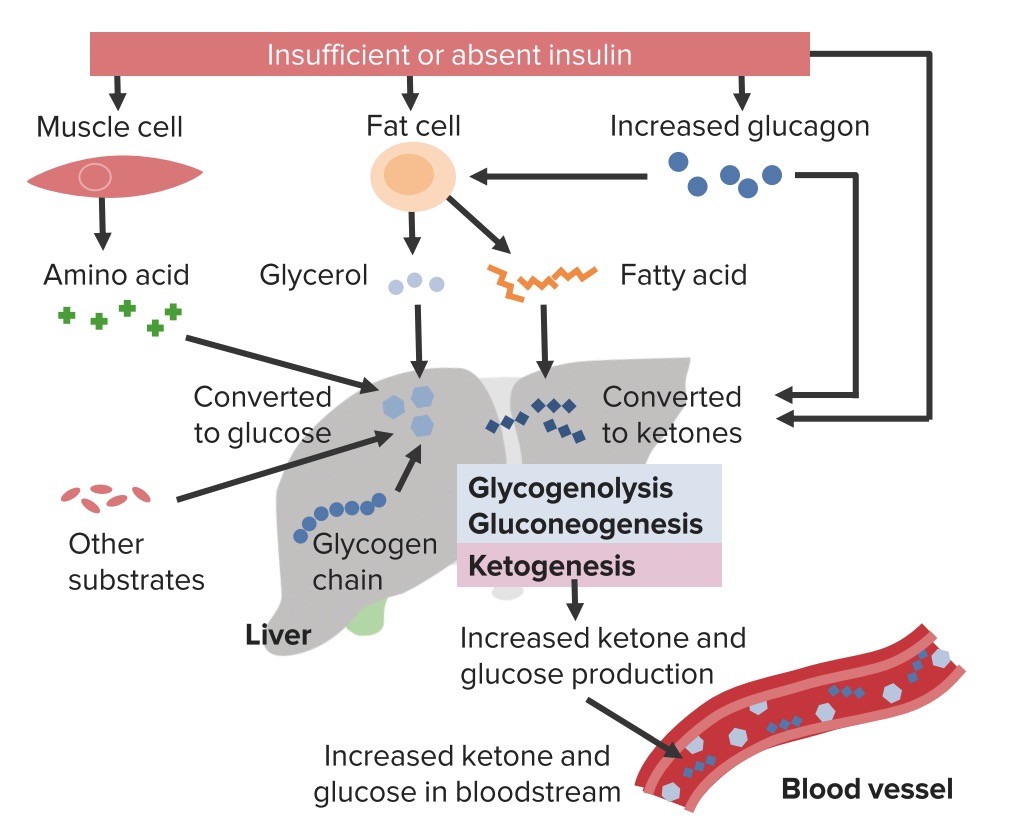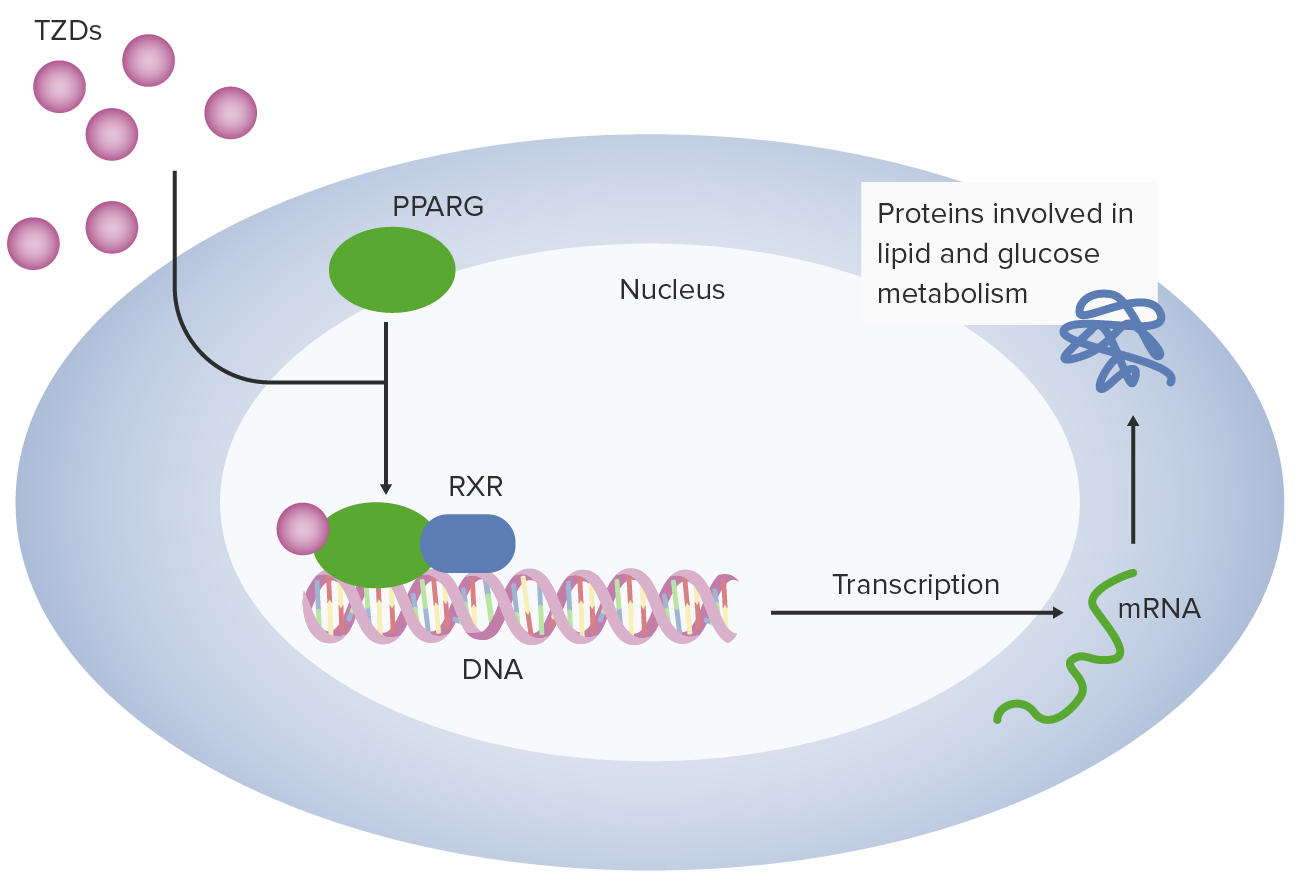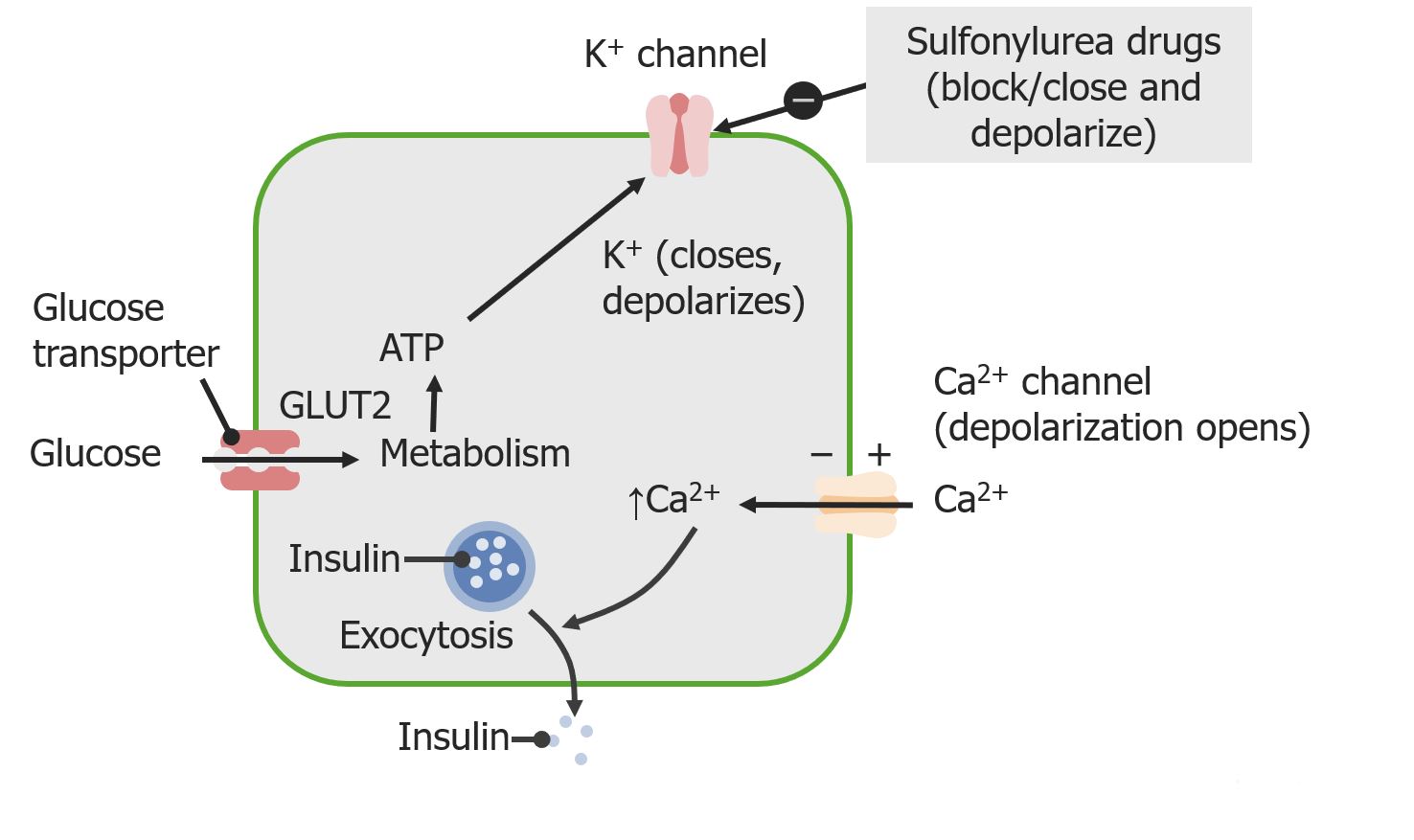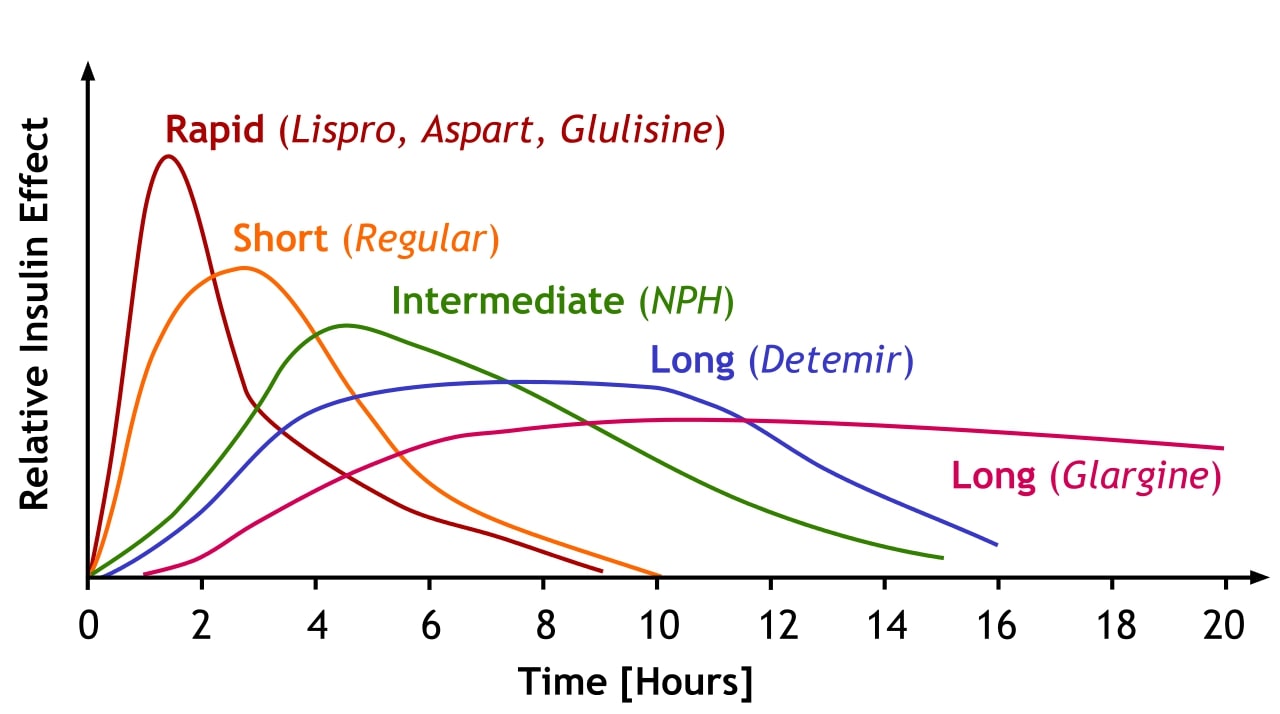Playlist
Show Playlist
Hide Playlist
Hyperglycemia: Diagnosis & Management
-
Emergency Medicine Bord Hypo and Hyperglycemia.pdf
-
Download Lecture Overview
00:01 So what are the things that we wanna do? Let’s say a patient presents and they say, “Oh, I checked my blood sugar at my doctor’s office.” or “I was concerned that I was having diabetes.” So I checked my blood sugar using my husband, my friend’s glucose monitor and it comes back elevated. 00:19 So they come to the Emergency Department seeking treatment. 00:22 So one of the first things you wanna do is you wanna check their glucose levels. 00:26 Are they elevated? And if so, to what extent? You wanna check for urinary ketones, So generally on most urinalysis machines, urinary ketones will be detected. 00:39 You wanna check a venous blood gas as generally what we check. 00:44 Here, we’re more worried about the pH and the carbon dioxide level rather than checking the oxygen levels. 00:50 So a venous blood gas is an adequate test here. 00:53 And you wanna check a chemistry panel. 00:55 If you’re worried about diabetic ketoacidosis, you wanna start looking for and thinking about an underlying cause. 01:04 So diabetic ketoacidosis occurs for a variety of reasons but the underlying causes are potentially cardiac, possibly infectious. 01:14 So if your patient is telling you things like they’re having chest pain or they’ve had fever, you wanna check labs that will reflect that and do additional imaging studies potentially that will look for that. 01:25 So for example, if a patient has a cough and a fever, you’re gonna wanna get a chest x-ray. 01:30 So when patients present with hyperglycemia, it could be a couple of things. 01:36 So one is that the patient could have new onset diabetes or uncomplicated hyperglycemia. 01:42 Uncomplicated hyperglycemia can occur if a patient hasn’t been compliant with a diabetic diet or possibly, if they haven’t been compliant with taking their medications in a known diabetic patient. 01:54 Diabetic ketoacidosis is generally for that type one diabetic patient. 02:00 For the patient that has an absence of insulin. 02:02 It can potentially develop in a type two diabetic patient but it’s more rare. 02:07 And then lastly, hyperglycemic hyperosmolar states. 02:11 More commonly in that type two diabetic patient, the patient with obesity, and we’re gonna be exploring these three conditions a little bit further. 02:20 So for uncomplicated hyperglycemia, you wanna make sure that you’re ruling out ketosis or another one of the hyperglycemic states. 02:29 In order to do that, you’re gonna send the appropriate lab work that was discussed. 02:33 You’re gonna check the urine for ketones. 02:34 You’re gonna possibly check a venous blood gas. 02:37 If none of those are present, so if the patient does not have evidence of diabetic ketoacidosis. 02:42 If you’re not worried that they’re having a hyperglycemic, hyperosmolar state, you can go ahead and treat with IV fluids. 02:49 You can consider administering insulin. 02:52 Many of these patients with uncomplicated hyperglycemia are gonna be maintained on oral medications. 02:58 But they may also be on insulin in which case, you can consider giving them a dose of insulin. 03:04 If someone is a new onset diabetic patient, you might also wanna consider giving them insulin. 03:09 For patients who have a new diagnosis of diabetes, Metformin is a good initial choice for medication. 03:18 The reason that we generally recommend Metformin for patients is because it has a low rate of developing hypoglycemia. 03:25 So Metformin based on the way it works and its mechanism of action, patients will rarely get too low of a blood sugar which is one of the big things that we wanna avoid especially if we’re gonna be discharging these patients. 03:37 It’s important to remember that from an emergency medicine perspective, we don’t have a magic number for discharge of patients. 03:44 So it’s not like if the number of the glucose gets less than 250, the patient can go home, or less than 300, or less than 400. 03:52 This is gonna vary based on attending physician practice and how comfortable people feel, and also based on the patient. 04:00 You wanna make sure that your patient has close follow-up though. 04:04 So you wanna make sure they have a doctor to follow-up with who’s gonna be checking their blood sugar and their lab work, and making sure that they’re in an appropriate range. 04:12 And you also wanna try and get your patient diabetic diet teaching and resources. 04:17 This is something that really could be a very big life changing diagnosis for someone. 04:22 So telling someone that they have new onset diabetes can have major implications for their life. 04:27 They may have to totally change the way that they’re eating. 04:29 They might have to be started on medication. 04:31 They may have to be started on insulin which is like a shot in their abdomen and sometimes patients aren’t very excited about that. 04:38 So keep that in mind when you’re counseling these patients on discharge. 04:42 Certain patients may be very plugged in with care. 04:45 They may have a primary care doctor. 04:46 Other patients may potentially even need to be admitted to the hospital to make sure that they’re able to get these resources.
About the Lecture
The lecture Hyperglycemia: Diagnosis & Management by Sharon Bord, MD is from the course Endocrine and Electrolyte Emergencies.
Included Quiz Questions
What is a good oral medication to consider giving the patient initially for a new diagnosis of uncomplicated hyperglycemia?
- Metformin
- Insulin
- Pioglitazone
- Glimepiride
- Acarbose
Which of the following statements regarding the initial testing of a patient with elevated blood sugar is INCORRECT?
- Arterial blood gas is preferred over venous blood gas testing.
- If DKA is suspected, the underlying cause must be identified.
- Ketones will appear in the urinalysis if its level in the body is elevated.
- A chemistry panel must also be done to check for other comorbidities.
- Serum glucose levels will indicate if blood sugar is elevated.
Customer reviews
5,0 of 5 stars
| 5 Stars |
|
5 |
| 4 Stars |
|
0 |
| 3 Stars |
|
0 |
| 2 Stars |
|
0 |
| 1 Star |
|
0 |








